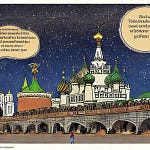- RSJ
Two somewhat random thoughts triggered this edition.
One, we have been talking about Radically Networked Societies (RNS) a fair bit here. These are non-hierarchical networks of individuals who share a common identity and take up a cause they are passionate about through adroit use of social media platforms and cellphones. In an RNS, there are no clear roles, the decision making is amorphous and the leadership is diffused. But things move really fast. The state which has to contend with RNS is hierarchical, slow and regimented. It can’t keep up. We have seen this with the many protests world over that have been triggered by RNS. Forget the state, even nimble hedge fund managers have found it difficult to stay in step with an RNS-like Reddit forum, r/wallstreetbets. We have made the case RNS are here to stay and the state will have to find a solution to control them.
But over the weekend I was struck with a thought. What have these RNS movements truly achieved? Have they turned themselves into mass movements and brought dramatic change anywhere? The answer is no. Over the last decade (starting from Arab Spring), there have been innumerable RNS movements driven by Twitter, WhatsApp and other platforms that have created a stir and captured media imagination. But they have been transient. Their long-term impact is yet to be seen. Does anyone really believe that the most long-lasting among RNS instances like Black Lives Matter or Occupy Wall Street will ever morph into something like the Civil Rights movement of the 60s or, more impossibly, the Russian revolution?
No.
So, the question: why?
Two, the majoritarian problem that’s facing many democracies the world over today. This is the ‘tyranny of the majority’ that Burke and Tocqueville had warned about almost two centuries ago. So, the question is how do you trump majoritarian-ism in a democracy which is designed for it? Granted, it is not where a democracy should have reached, but having reached there how does it get out from it? A solution I have written about in previous editions is to do nothing. My argument has been it is impossible for a large agglomeration to remain stable over a period of time. It will splinter because the concept of political is about the existential distinction between friend and enemy like Schmitt wrote. So, you just wait for nature to take its own course. But that doesn’t seem a proactive solution to many. There must be a way to counter-mobilise the masses, they argue.
So, the question: is there a way?
Enter The Longshoreman Philosopher
Both these questions - why the many RNS movements haven’t turned into real mass movements and why is it difficult to counter-mobilise against majoritarian tendencies - bring me to the works of Eric Hoffer. More specifically, his first book - The True Believer: Thoughts on the Nature of Mass Movements (1951).
Eric Hoffer was an intellectual like no other. Consider this: he never finished even grammar school, he was blind between the age of 7 to 15, and he worked every day of his life as a longshoreman in the docks of San Francisco doing hard physical labour. Yet, or maybe because of these, Hoffer was a peerless social and moral philosopher with dazzling aphorisms and insights. At the age of 53, he wrote The True Believer, a slim book that packs in, to my mind, the most number of insights per page than any book I have read. It will be impossible to sum up the book in a few lines but let me try with a few helpful extracts from the book. Just to be clear, these do no justice to the richness of the text when read in full.
First, Hoffer establishes all mass movements, religious, political or social, are interchangeable. When the situation is right for a mass movement, it is right for any movement regardless of belief or dogma. So, for Hoffer, every mass movement from Christianity to Communism to Fascism have the same underlying features. As he wrote:
“Since all mass movements draw their adherents from the same types of humanity and appeal to the same types of mind, it follows: (a) all mass movements are competitive, and the gain of one in adherents is the loss of all the others; (b) all mass movements are interchangeable. One mass movement readily transforms itself into another. A religious movement may develop into a social revolution or a nationalist movement; a social revolution, into militant nationalism or a religious movement; a nationalist movement into a social revolution or a religious movement.”
Second, the movements get off the ground by what Hoffer called ‘Men of Words’. Most people don’t like change, no matter how dissatisfied they are with their present. They will seek change at the margins. They look upon a rabble-rousing change agent with suspicion. Men of Words, on the other hand, are different. Their core skill is their ability to articulate the need for change in a benign yet persistent manner. They find an audience with the restive masses with their farsighted prescriptions for change without an immediate sense of urgency.
“…. the man of words prepares the ground for the rise of a mass movement: 1) by discrediting prevailing creeds and institutions and detaching from them the allegiance of the people; 2) by indirectly creating a hunger for faith in the hearts of those who cannot live without it, so that when the new faith is preached it finds an eager response among the disillusioned masses; 3) by furnishing the doctrine and the slogans of the new faith; 4) by undermining the convictions of the “better people"— those who can get along without faith—so that when the new fanaticism makes its appearance they are without the capacity to resist it.”
Third, once the ground has been set by the Man of Words, the fanatics enter. They love chaos and they seek anarchy. The old order is rotten to its core and only a complete dismantling of it will satisfy a fanatic. They don’t want to waste time to reform it. It has to be overthrown. The fanatics get the mass movement rolling not with their convictions but something more primal. Hate. As Hoffer wrote:
“Mass movements can rise and spread without belief in a God, but never without belief in a devil. Usually the strength of a mass movement is proportionate to the vividness and tangibility of its devil.”
The fanatics are ready to sacrifice their lives to smash the old order. This passion is great when they are in a life and death struggle with their enemies during the movement. But it becomes a problem when victory is in sight.
“The danger of the fanatic to the development of a movement is that he cannot settle down. Once victory has been won and the new order begins to crystallize, the fanatic becomes an element of strain and disruption. The taste for strong feeling drives him on to search for mysteries yet to be revealed and secret doors yet to be opened. He keeps groping for extremes.”
Fourth, the revolution is then saved from the fanatics by the practical ‘Man of Action’. This marks the institutionalisation phase of the movement. The change that was so desired and is now at the doorsteps needs to be perpetuated through institutions and systems. This has to be done by the Man of Action. The practical man looking for order. As Hoffer wrote: “The genuine man of action is not a man of faith but a man of law.” He is seeking stability and he will go to the extent of coercing the masses to perpetuate the hard-won change.
“In the hands of a man of action the mass movement ceases to be a refuge from the agonies and burdens of an individual existence and becomes a means of self-realization for the ambitious. The irresistible attraction which the movement now exerts on those preoccupied with their individual careers is a clear-cut indication of the drastic change in its character and of its reconciliation with the present. It is also clear that the influx of these career men accelerates the transformation of the movement into an enterprise.”
Hoffer believed a successful revolution works when these 3 roles - Man of Words, Fanatic and Man of Actions - are split among different people who play their parts and move on. However, he was aware there was a rare breed of people who straddled these roles depending on where the movement was at any point in time.
“There are, of course, rare leaders such as Lincoln, Gandhi, even F.D.R., Churchill and Nehru. They do not hesitate to harness man’s hungers and fears to weld a following and make it zealous unto death in the service of a holy cause; but unlike a Hitler, a Stalin, or even a Luther and a Calvin,1 they are not tempted to use the slime of frustrated souls as mortar in the building of a new world. The self-confidence of these rare leaders is derived from and blended with their faith in humanity, for they know that no one can be honorable unless he honors mankind.”
Hoffer Today
Now back to the two questions I raised at the start of this edition - why the many RNS movements haven’t turned into real mass movements and why is it difficult to counter-mobilise against majoritarian tendencies?
Hoffer probably has some answers.
One, the men of words who can sustain a long campaign to “undermine institutions, discredit those in power, weaken prevailing beliefs and loyalties” are in short supply today. The modern men of words take on too many causes, speak on varied issues and often end up contradicting or discrediting themselves.
Two, fanaticism is cheap on social media. The cost of fanaticism is low. This creates a temporary mob of impassioned supporters of a cause who are high on noise and low on stakes. They are all fire and brimstone behind the cloak of anonymity on these platforms. They lack the fundamental Hoffer-ian feature that distinguishes fanatics from others: self-sacrifice.
As Hoffer wrote:
“One of the rules that emerges from a consideration of the factors that promote self-sacrifice is that we are less ready to die for what we have or are than for what we wish to have and to be.”
It follows that any counter-mobilisation against a majoritarian agglomeration must satisfy the requirements of a mass movement laid out by Hoffer. And what would that be? A real intellectual foundation that’s sustained over time by men of words followed by real activism and self-sacrifice by the fanatics to the cause. The men of action can then follow to institutionalise the change.
As I was reading Vinay Sitapati’s excellent Jugalbandi: The BJP Before Modi, I realised how Hoffer’s thesis on mass movements fits perfectly to the two seminal political events of India over the last century - the freedom movement leading to Congress hegemony till the mid-80s and the rise of the BJP and Hindu nationalism from then to the present. Both involved men of words creating the grounds for stoking dissatisfaction over years followed by hordes of self-sacrificing fanatics getting the movement off the ground. That then sets the stage for men of action to codify and institutionalise the change. What our history has shown is any mass counter-movement to the current order will take years to fructify with the right conditions. Of course, the current order will try and prevent the building up of the right conditions. That’s what we see around us now.
70 years since its first print, Hoffer’s ‘The True Believer’ has the best answers to the question that’s often asked in politics today - how will an alternative emerge? I can imagine a lot of people whom I can recommend it as an essential reading.
HomeWork
Reading and listening recommendations on public policy matters
[Video] An interview of Eric Hoffer (this is part 1. There are 4 more parts). The man was an original.











Share this post